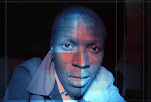I want, therefore, to leave the public outcry aside and focus on the photographic essay as a piece of artwork in its own right, thus offering a personal view on the use of the arts in health care, particularly in the care of older people. A burning question as I leave the debate behind, however, would be: "Where are the voices of the residents?" They seem to absent yet again, as others have scrambled to speak on their behalf. I wonder if anyone asked them what they thought.
Stark representation
Such stark representation of the human body, of whatever age, inevitably arouses mixed reactions. Nevertheless, this essay presents a reality of ageing and care of the ageing in a way we, nurses included, so often choose to ignore. For this reason and others, I write to commend and congratulate Alan Knowles and Kai Tiaki Nursing New Zealand for this wonderfully moving and honest portrayal of older people and those who care for them.
The photographic essay offers a refreshing contribution to the journal with its images and quotes highlighting the intimate and respectful relationship between care-giver and care receiver. The photos do not shy away, as good art shouldn't, from the vulnerability, frailty, and dependence of these older people, or from the reality of body work which caters undertake day after day. For me, the photos also reveal much warmth, affection, attentiveness and trusting acceptance on the part of both parties. Old naked bodies are not often seen in the everyday. The images and representations of ageing which are portrayed in magazines, film, newspapers are often of a refined old age--people with silvery grey hair who are described as "ageing positively"--perhaps a couple, of indeterminate
old age, walking hand-in-hand on a Kapiti Coast beach, safe in the knowledge that they have the good life in their retirement village. Or, if we do see even older, more frail people in the news, they are sitting dressed up in front of a centenarian birthday cake, and they are described as "cute", "sweet", "delightful", "amazing for their age". Or they are an "outrageous octogenarian
" who is skydiving
or going on a camel trek. These are the images we are more comfortable with. But images such as those in the photographic essay are scary for us. They remind us of our own old age, which we will reach unless we die first. And all the antioxidant
broccoli and pedometers in the worn will not keep this at bay. This discomfort horrifies us, and then suddenly we are horrified
for the older people in the photographs, as surely they could not possibly want this: our own mothers wouldn't, would they? (read: and we certainly wouldn't.)
If the role of art is to delight, enthuse
, calm, inspire and transport us, then surely it is also to provoke, question, challenge and make us think. I think we are all thinking, as a result of this photographic essay, and this is a good thing. Thank you, Alan and Kai Tiaki Nursing New Zealand, for capturing a slice of the everyday and sharing it with nurses and caregivers. This is often undervalued
work, even within nursing, and you show how vital and important carework is when delivered by respectful, non-judgemental, committed staff who carry out their work while upholding the dignity (dignity does not just occur when one is fully dressed) of the older people, whom in many instances are cared for as if they are members of a caters own family. Thank you also to those older people who agreed to have their photos taken. Alan Knowles has done them proud and to my mind there is nothing demeaning
or exploitative about these photos. It is surely, instead, potentially patronising to suggest that this might be so.
It would be sad indeed if the value of the photographic essay is lost in a furore of fury. It is a shame that the visual essay was never exhibited as planned, which may have been a more appropriate vehicle for the photos and may have done them more justice. But art will out and a large group of New Zealanders
are now perhaps reflecting more on real ageing, about their own ageing and about how frail old people are cared for in our country.
Lorraine Ritchie RN, BA, MHSci, is a nursing lecturer in Christchurch. She has a particular interest in the meaning of old age and ageing in society, and care from the older person's and a policy perspective. Her PhD will took at older people's assessment narratives and beliefs in medication using discourse analysis
methodology.
COPYRIGHT 2006 New Zealand Nurses' Organisation
No portion of this article can be reproduced without the express written permission from the copyright holder.
Copyright 2006, Gale Group. All rights reserved. Gale Group is a Thomson Corporation Company.

No comments:
Post a Comment